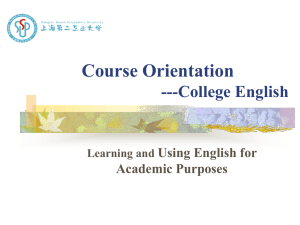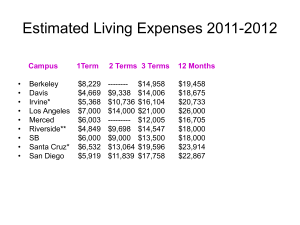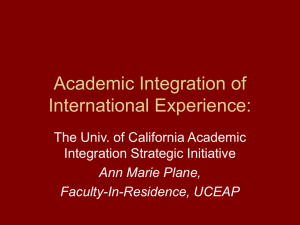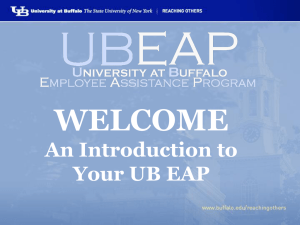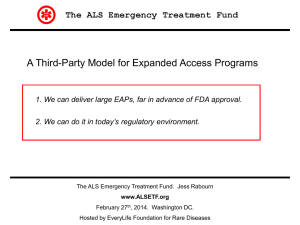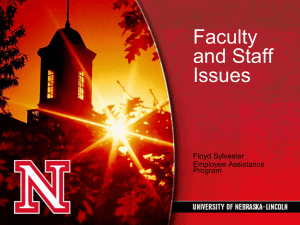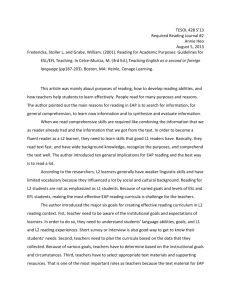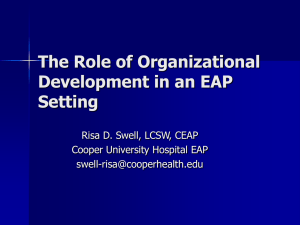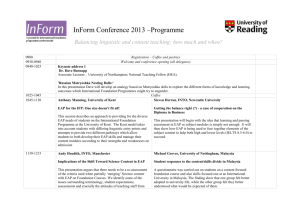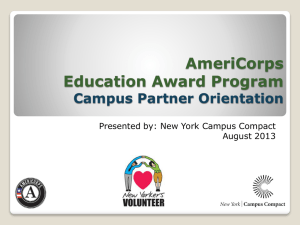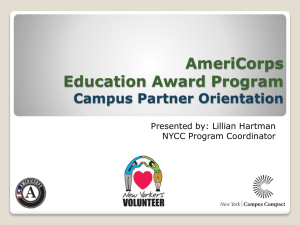Request for Proposals
advertisement
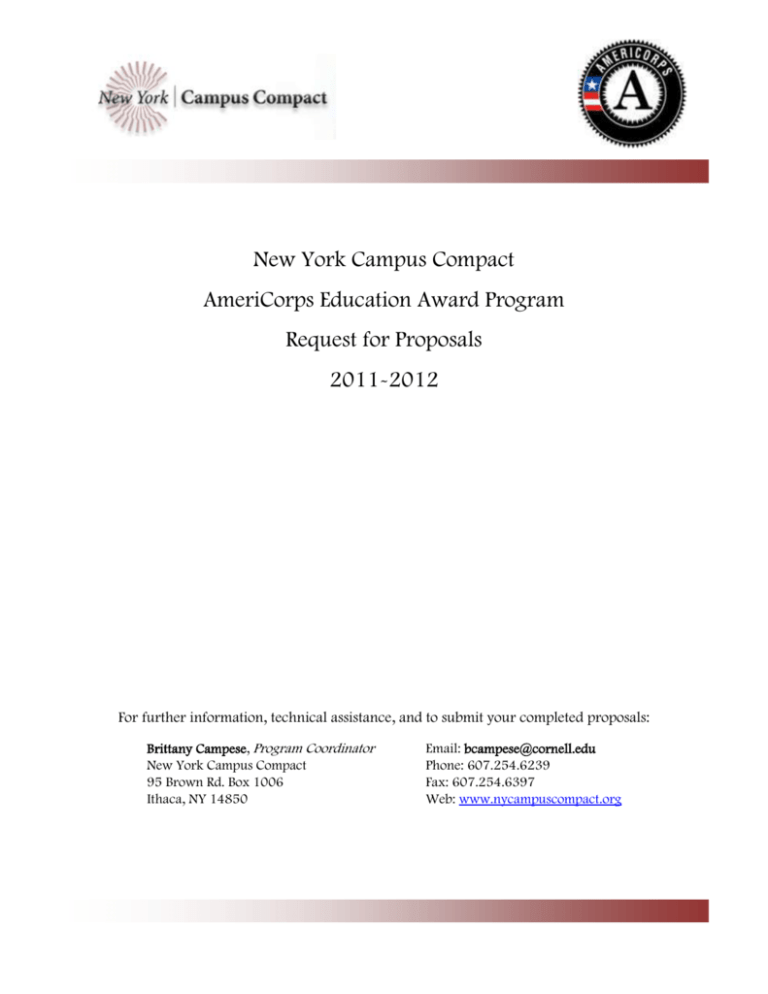
New York Campus Compact AmeriCorps Education Award Program Request for Proposals 2011-2012 For further information, technical assistance, and to submit your completed proposals: Brittany Campese, Program Coordinator New York Campus Compact 95 Brown Rd. Box 1006 Ithaca, NY 14850 Email: bcampese@cornell.edu Phone: 607.254.6239 Fax: 607.254.6397 Web: www.nycampuscompact.org NYCC’s Education Award Program New York Campus Compact’s Education Award Program (EAP) is a part-time AmeriCorps program that encourages college and university students to learn civic skills by providing direct service to a not-for-profit community agency. EAP supports the recruitment of college students to serve community partner organizations, helping to increase the capacity of local nonprofits, schools, and faith-based organizations to meet critical needs. At the completion of 300 hours of community service, college students earn a scholarship that will help offset their educational expenses. New York Campus Compact has received 350 additional AmeriCorps EAP slots for the 2011-2012 program year. Additional information relating to EAP, including service regulations and phases of service can be found online in the Powerpoint Introduction to NYCC's Education Award Program: http://nycampuscompact.org/AmeriCorpsStudentsinService.aspx Submission Instructions Applicants MUST review Powerpoint Introduction to NYCC's Education Award Program prior to submitting proposal. All proposals are to be submitted electronically (with original signatures) by 5pm on Friday, November 18th, 2011. Selection Process All applicants will be contacted regarding the status of their proposals by the last week in November. Campus partner selection is competitive, based on proposal alignment with NYCC/EAP goals and institutional capacity to implement EAP programming. Anticipated 2011-2012 Timeline November 18 End of November Beginning of December January-June Proposals due Site Award Notification Mandatory Campus Partner Orientation Campuses begin recruitment and enrollment -2- Overview of Partner Responsibilities NYCC Campus Partner Community Partner Student • award EAP slots to campuses • collect and submit Memorandum of Understanding (MOU) between campus partners and NYCC/Cornell University • train campus partners to implement program on campus • provide campus partners with recruitment and orientation materials • provide campus partners with ongoing support • provide professional development and reflection opportunities to EAP students • make periodic site visits to participating campuses • complete grant reporting requirements • • • • • • • • apply for EAP program submit signed MOU attend in-person training with NYCC recruit and provide in-person orientation to students complete enrollment, service, and exit forms track service hours monitor volunteer progress encourage students to participate in professional development and reflection opportunities • complete brief bi-annual reporting documents • complete enrollment, service, and exit forms • provide on-site training • • • • attend in-person orientation complete enrollment, service, and exit forms serve 300 hours participate in professional development and reflection opportunities -3- Proposal Cover Page Applicant Campus Partner Institution: Host Office: Address: Legal Applicant: This person must have authority to commit and receive funds on behalf of the institution. Title: Department: Email: Phone: Fax: Proposed EAP Program Supervisor(s): Title: Department: Email: Phone: Fax: Certification On behalf of this institution, I certify that: All information contained in this application is true and correct to the best of my knowledge We have reviewed the online orientation presentation We agree to abide by NYCC and CNCS campus partner requirements for EAP participants Legal Applicant Signature Date Proposed EAP Supervisor Signature Date -4- Narrative In no more than 5 pages, please answer the following questions: 1) How many EAP slots would you like to request? (Campuses can request between 10-100 slots.) 2) How do you intend to recruit that number of EAP members from your student body? 3) While 300 hours of service may not seem like a lot, many students only have the capacity to perform service ~10 weeks each semester. Broken down, this means that they must perform between 10-15 hours of service per week. How will you ensure that EAP members have the capacity to perform the hours and are on track to completing all 300 hours? 4) Would your proposed EAP support existing service opportunities/programs or would it require new service site development? Have you already identified specific community partners who will work with your EAP members? 5) This grant requires quite a bit of program administration, including: recruitment, orientation, paperwork processing, follow-up, and reporting. Please discuss your plan and capacity for supervision and program implementation. Please include the names and titles of all associated staff members. 6) How will you monitor progress and provide ongoing feedback and information to your EAP members? 7) Will you provide any opportunities for reflection or professional development as part of your EAP? 8) Federal regulations require criminal background checks for all members and FBI checks for all members having recurring access to vulnerable populations. Do your campus or community partner sites have the capacity to provide criminal record checks for participating EAP students? (Note: Answering ‘No’ to this question will not prevent your campus from receiving EAP slots. Your response will be helpful in preparing our budget and program plan.) 9) NYCC has identified two specific Focus Areas that we will be measuring this program year. Please indicate if your EAP members will perform service in either of the following Focus Areas: Job Development/Placement and/or Afterschool Programs. 10) CNCS has identified several National Priority Areas. Please indicate if your EAP members will perform service in any of the following categories: Education, Economic Opportunity, Veterans Support, Healthy Futures, and/or Environment. -5-
